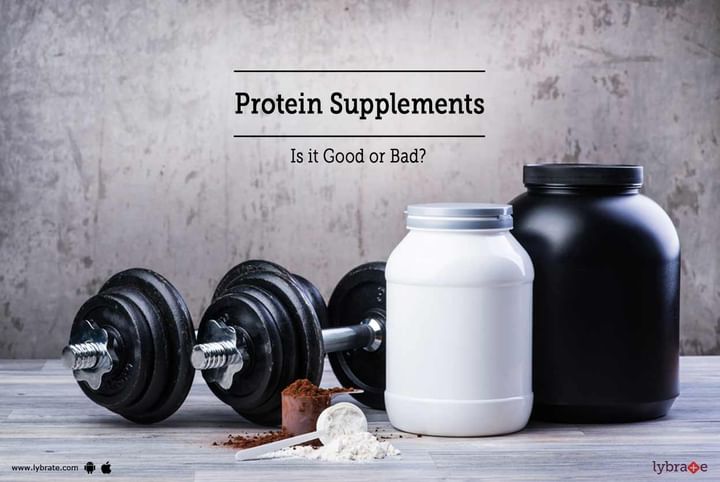Protein Supplements - Is it Good or Bad?
Protein supplements cannot hurt, right? We know you have questions about the efficacy and safety of protein supplementation and we are going to answer all your concerns right here. People all around the world spend billions of dollars on sports nutrition and protein supplements that can enhance their athletic performance and improve their looks. These supplements usually consist of whey, casein, soy, egg albumin, brown rice, cow milk, wheat, beef, pea, hemp, etc. and are available as ready-to-drink shakes, bars, gels and powders in a variety of flavours.
How are protein supplements good?
- Proteins are good for health as they help build muscle. They improve immune function too.
- Furthermore, protein may also help reduce blood pressure.
- Research has proved beyond a doubt that higher protein intake may help manage normal blood pressure and prevent complications due to hypertension.
- Consuming enough soy protein is also beneficial to cardiovascular health as it lowers triglyceride levels and LDL cholesterol levels. It also increases HDL levels.
Whey protein reduces obesity and enhances immunity as well as anti-oxidant activity. It also lowers blood glucose levels. Remember, training while taking whey supplements can enhance lean body mass, strength, and muscle size as whey is a complete protein containing all nine of the amino acids. Thus, these supplements are a good source of all the amino acids required by your body.
How are they bad?
- Protein supplements are not regulated by the US Food and Drug Administration (FDA).
- As the supplement market is unregulated, there is a major risk of use of inferior products and contamination with heavy metals and pesticides.
- Another reason protein supplementation is bad is because you don’t require so much protein, even if you are working out. The recommended daily intake of protein for healthy adults is just 0.75 g of protein/kg body weight. This means you need about 45 - 56 g of protein a day. Adult athletes need 1.5 g/kg body weight.
- But if you are on protein supplements, you may end up ingesting more protein than required. This can cause a buildup of ‘ketones’ bodies. And this in turn can cause ketosis. In simple words, ketosis can cause your body's pH to lower to dangerously acidic levels, leading to a state called ketoacidosis.
- This can lead to an inordinate load on your kidneys as they work overtime to get rid of ketones and this may lead to severe dehydration, particularly if you exercise heavily. And this can make you weak and dizzy, not strong.
- It can also give you a bad breath and other health problems like osteoporosis.
Last, but not the least, protein supplements contain extra calories. Extra protein required by you can be received without a problem by eating a protein rich diet. You don’t need protein supplements for this. If you wish to discuss about any specific problem, you can consult a doctor.
Also Read: Try Plix Strength Plant Protein to Meet Your Daily Fibre Needs



+1.svg)
